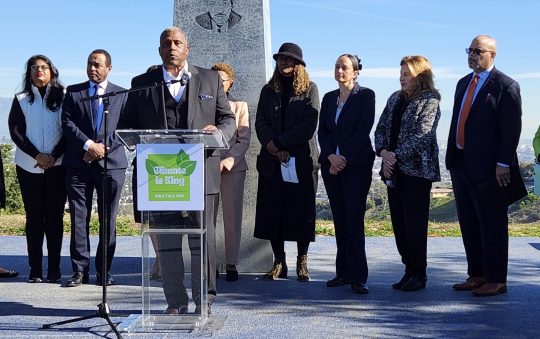
For the past two years, I’ve been working on a major project at UCLA entitled, “Healing Our Hearts, Minds and Bodies” (HHMB). The project supports Black and Latinx people living with HIV by teaching skills to reduce their risk for cardiovascular diseases such as high blood pressure, not eating healthy or exercising, gaining weight, or being at risk for or living with diabetes. The program also teaches you how to manage frightening thoughts by learning how to relax and control being nervous and easily upset. Because HIV is a chronic disease that needs daily management, it is also important to maintain good health by learning to identify and treat medical conditions that are common among people living with HIV.
According to the Centers for Disease Control and Prevention (CDC), some of those conditions, like heart disease, account for about 610,000 deaths every year in the United States. When a person is traumatized or has memories that frighten and upset them, they may have constant memories, nightmares, or trouble sleeping or they may eat or smoke too much. These experiences can affect your heart, your weight, and your overall health, but you may not be willing to see a doctor or take medications regularly.
We often see television ads showing people living with HIV/AIDS running on the beach and having fun, and that is great. But there are many men and women in our community who are dealing with heart disease, diabetes, high blood pressure and trauma, as well as HIV. There is not enough information available about how to manage HIV and these other issues. As if that isn’t enough, today we are facing new health risks with COVID-19.
There are ways to address these related health problems. The Heart, Lung, and Blood Institute of the National Institute of Health funded HHMB to help people living with HIV learn new skills to take care of their heart health and lessen the effects of trauma so that they can lead healthier lives. These lessons are also helping them cope with COVID-19.
Before COVID-19, the HHMB project provided our participants a safe space to meet once a week for 5 weeks at the Oasis Clinic at Charles Drew Center or at Northeast Valley Health Clinic in the San Fernando Valley. In these group classes, participants learn different coping skills to reduce heart disease risks, better manage diabetes, lower their blood pressure, eat healthier and increase physical activity. Group members include men and women of all ages who support each other and often find that they have had similar experiences. Participants practice relaxation exercises and learn what works best for them to control stress in healthy ways; sometimes they play music that reminds group members of happy memories. They learn how to talk to doctors and to report on what needs to improve so that providers will be more likely to listen to their concerns. One of the most important activities of the HHMB project is to discuss traumatic experiences to understand how they can affect our health over time.
Clinic staff know how to use social distancing, masks and gloves to keep our participants safe. They will not let COVID-19 defeat us or the important work that needs to be done in our community, especially since we have been hit so hard by the virus. Some of the things that were important for preserving our health before COVID-19 are even more important now that we are dealing with this virus.
COVID-19 increases health risks for people living with HIV and other chronic conditions, like obesity, diabetes, or heart disease. This means that the HHMB project is critical for the wellbeing of those in our community.
As a result, we are now providing HHMB participants with tablets and WiFi hotspots with 6 months of prepaid WiFi. We now not only provide a way for many of our participants to continue to take part in the HHMB project virtually, but also a way to stay connected to family and friends during these challenging times. It can get lonely for people who do not have transportation and have difficulty even getting out for a doctor’s appointment. HHMB is a way to heal the heart and connect with each other, though from a distance.
It was written, “In their hearts, humans plan their course.” Help us stay on course. If you or a friend or a family member is living with HIV and might be a good match for this project, please feel free to contact us at (310) 206-9860 (English) or (855) 533-3925 (Spanish) to see if you are eligible to participate in the HHMB project. Make your ‘new normal’ a healthy one.###







